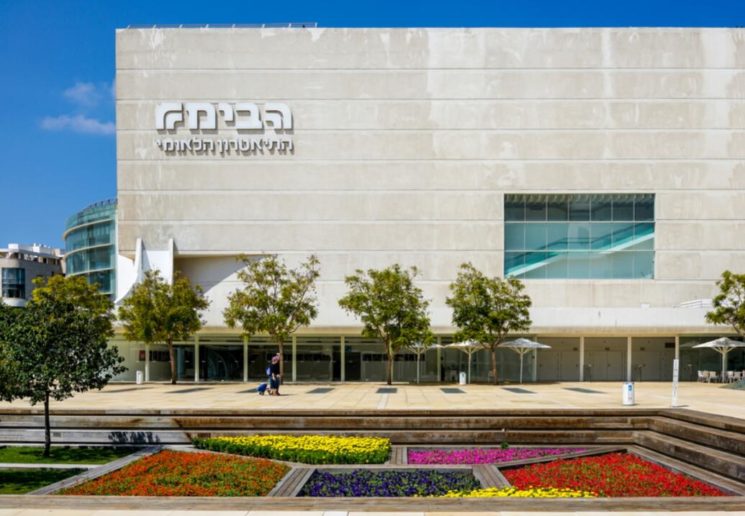Israeli theater has its roots in the emergence of a Hebrew theater in Western Europe and Russia, besides it also having a background in Yiddish culture that has a rich theater history in both Europe and North America. In Israel, there are also today groups and companies that play Yiddish. The modern Israeli theater has its immediate origin in Hebrew theater development in the Soviet Union, with the founding of the Habimah Theater in Moscow in 1918. It represented a successful attempt to revive the Hebrew language. In the beginning, it was an experimental amateur theater but eventually, well-known Russian theater people such as K. Stanislavsky and J. Vakhtangov made their mark on it, and the latter’s staging of S. Anskis Dybbuk (1922) meant an artistic breakthrough in a retreated style.
In 1926, the company left Russia to tour Europe and the United States, and in 1928 a handful of its members came to Palestine to re-establish the company there. It then gained the status of national theater in the newly created state of Israel after it had acquired its own building in 1935. Ohel was a company founded in Palestine in 1925 by Moshe Halevi, with Hebrew as a stage language. It was organized as a cultural kibbutz according to a corporate pattern. It was closed down in 1969, and one of the greatest successes had been Jaroslav Hasek’s The Good Soldier Švejk (1935). The Cameri Theater was founded in 1944 with Western European orientation, and one of its most important productions was Moshe Shamir’s He Walked the Fieldswith a premiere in 1948. It was a piece about the conflict in connection with the cultural meeting between the original Jewish settlers and the newly arrived immigrants. The Haifa City Theater was opened in 1961 under the direction of Yosef Millo, and one of the most important productions was Brechts The Caucasian Cretaceous in 1962.
In recent years
One of the most central dramatists of our time in Israel has been Yehousha Sobol with plays such as The Soul of a Jew (1982), and Ghetto (1984), performed at Haifa’s City Theater. He has built heavily on documentary material and has been extensively played outside of Israel.
Israeli theater festivals have helped to make international trends known in Israel, such as the Acre Festival. The Gesher Theater is a theater group started by Russian immigrants. The group has played an international repertoire in both Hebrew and Russian. The Palestinian al-Casaba Theater is the most important for the Palestinian residents of the area. The Habimah Theater hosted the Ibsen Festival in Oslo with a performance by Ibsen’s Gjengangere at the National Theater in 1996.
